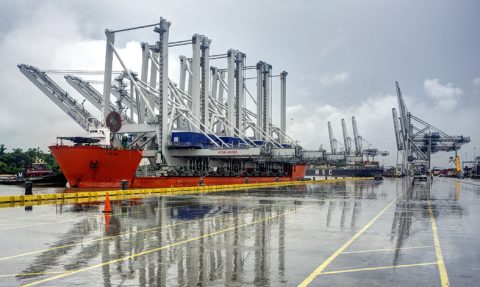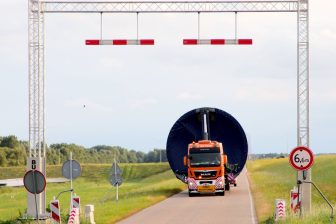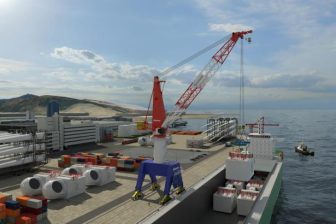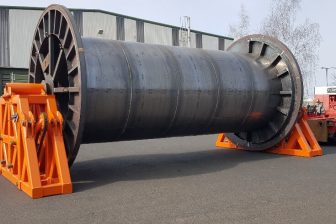
There will be fewer crane transports as Konecranes sees demand fall
There will be fewer crane transports in the foreseeable future as Finnish crane manufacturer Konecranes sees demand for its cranes fall sharply. Customers have limited access to their premises and are cutting investments in response to the pandemic. As a result, the company’s order intake declined by 13.1% and is expected to worsen in the current reporting period.
The company booked slightly higher sales of EUR 767 million due to the addition of MHE-Demag last year but excluding the newly acquired business, sales were down by 1.3%.
Meanwhile, the company’s order intake declined by 13.1% to EUR 737 million driven by lower orders in the business areas Industrial Equipment and Port Solutions. The Service business could only partially offset the decline.
Konecranes operating profit in the first quarter also showed a steep decline, dropping from EUR 27.3 million in the first quarter of last year to just EUR 7.8 million now.
The worldwide demand picture is incredibly volatile at the moment. The pandemic has led to deteriorating demand among industrial customers in Europe and North America. China is said to be showing early signs of improving demand conditions but demand in the rest of the Asia-Pacific is weakening.
Global container throughput has declined sharply since the outbreak and many port operators are postponing decision-making in the current environment. On the bright side, the long-term prospects in container handling remain good overall, Konecranes states.
The worse is yet to come
“The world changed dramatically during the first quarter of 2020. Directly or indirectly, every country and business around the world has increasingly felt the impact of the pandemic”, says CEO Rob Smith.
Smith says Konecranes has been preparing for multiple recovery scenarios and is strongly focusing on keeping its cost base aligned with the reduced and uncertain demand.
“In Q1, many of our customers limited access to their premises, affecting our ability to perform on-site work and making it especially challenging to deliver and install new equipment and perform on-site service operations. In Q2, we expect the coronavirus impact on sales to be particularly negative”, Smith says.
Konecranes’ own operations are also affected by the virus. Material deliveries have become more challenging and some factories were interrupted during parts of the first quarter. “At the end of April, our factories in India, Malaysia, Philippines and South Africa are shut down. At this point we expect the impact from these disruptions to our global supply operations to be limited, largely as our European component factories have continued to run without interruptions”, says Smith.
He expects both sales and new orders to further decline in the second quarter of 2020 but beyond Q2, “turning around the process crane business and improving the profitability of the Industrial Equipment business is one of my key focus areas”, Smith adds. He ultimately expects the company will emerge from the crisis the same way the company entered it: “as the industry leader.”



